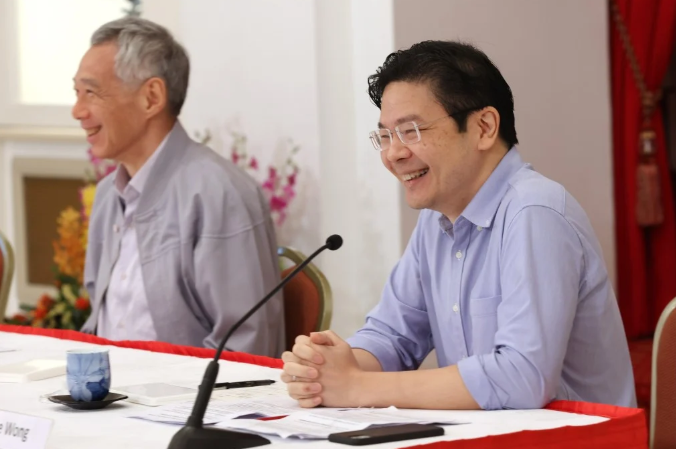Analysts highlight minimal reshuffle and its significance for Singapore’s political future
SINGAPORE: The recent Cabinet reshuffle, announced on Monday (Jun 6), has firmly positioned Finance Minister Lawrence Wong as Singapore’s future Prime Minister. His promotion to Deputy Prime Minister solidifies his role as the leader of the country’s fourth-generation (4G) political team, according to political analysts.
This reshuffle comes two months after Wong, 49, was appointed to head the 4G team of the ruling People’s Action Party (PAP). While no other significant changes were made to the Cabinet, experts described the reshuffle as a “minimalist” move, yet highly significant in its implications for the leadership transition.
Solidifying Succession
Associate Professor Tan Ern Ser from the National University of Singapore (NUS) emphasised that this reshuffle’s primary purpose was to officially designate Wong as the heir apparent, marking the start of the transition process. “It cuts out the uncertainty and speculation,” said Assoc Prof Tan, referring to the clarity it provides regarding the next steps in the leadership succession.
While this reshuffle confirms Wong as the 4G leader, Singapore Management University’s Associate Professor Eugene Tan noted that it offered no indication of when Wong would formally assume the role of Prime Minister. The final step in this transition will likely be the PAP’s Central Executive Committee (CEC) elections, where Wong is expected to be appointed assistant secretary-general.
Minor Shifts, Strategic Continuity
Despite the high-profile promotion of Wong, the reshuffle was notable for its lack of major personnel changes. Analysts pointed out that with significant shifts already made in the 2021 reshuffle, the government preferred continuity, especially in key ministries such as Defence, Foreign Affairs, and Law. Ministers such as Ng Eng Hen (Defence), Vivian Balakrishnan (Foreign Affairs), and K Shanmugam (Law) have held their positions for years and are viewed as stabilising forces during uncertain global times.
Dr Gillian Koh from the Institute of Policy Studies (IPS) suggested that the limited changes in this reshuffle were pragmatic, as it is still too early to make disruptive moves. She noted that while some 4G leaders, such as Tan Kiat How and Rahayu Mahzam, were promoted, these shifts were designed to give emerging leaders time to demonstrate their capabilities before assuming greater responsibility.
Looking Ahead: 5G Leadership
Looking further into the future, analysts speculated on the rise of 5G leaders, including figures like Desmond Lee, who could potentially take on more prominent roles within the Cabinet. While Health Minister Ong Ye Kung and Education Minister Chan Chun Sing remain integral to the 4G team, their current portfolios suggest that they will continue to contribute in their areas for the time being.
The reshuffle reflects a careful balance between political continuity and the need for gradual renewal, with an emphasis on providing younger leaders with exposure to different ministries while leaving major Cabinet restructuring to the next Prime Minister.








